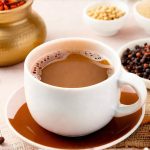Many people rely on coffee as their morning ritual – the familiar aroma, the jolt of energy, the comforting warmth. But what happens when coffee isn’t an option? Perhaps you’re sensitive to caffeine, trying to reduce your intake for health reasons, experiencing a medical condition that prohibits it, or simply looking to diversify your routine. Whatever the reason, starting the day without coffee doesn’t have to mean sacrificing alertness and enjoyment. In fact, exploring alternative morning beverages can open up a world of delicious and invigorating options tailored to different needs and preferences.
The key is understanding why you reach for coffee in the first place. Is it the energy boost? The ritualistic aspect? The taste itself? Identifying your motivation allows you to find alternatives that satisfy those same desires without relying on caffeine. This article will delve into a variety of beverages – from herbal teas and nutrient-rich smoothies to hydrating infusions and revitalizing elixirs – offering practical suggestions and insightful information to help you create a fulfilling morning beverage routine, even if coffee is off the table. We’ll focus not just on what to drink, but also how to prepare it for maximum benefit and enjoyment.
Beyond Caffeine: Exploring Energizing Alternatives
The most common reason people drink coffee is for its energizing effects. However, energy isn’t solely dependent on caffeine. Many beverages can provide a natural lift through hydration, nutrient density, or stimulating aromas. Consider the power of adaptogens, naturally occurring substances that help your body manage stress and boost resilience. Incorporating adaptogenic herbs into your morning drink can offer sustained energy without the jitters or crash associated with caffeine. For example, drinks containing ashwagandha, rhodiola, or ginseng are gaining popularity as natural alternatives to coffee.
Hydration is also crucial for energy levels. Often, fatigue isn’t due to a lack of stimulation but rather dehydration. Starting your day with a large glass of water – perhaps infused with fruit or herbs – can make a significant difference in how you feel. Beyond plain water, herbal teas offer both hydration and additional benefits. Peppermint tea is incredibly refreshing and invigorating, while ginger tea aids digestion and provides a gentle warming sensation. These alternatives demonstrate that energy doesn’t always have to come from caffeine; it can be cultivated through mindful hydration and nutrient-rich choices. If you find digestive symptoms are impacting your routine, consider how hydration may help.
Finally, don’t underestimate the power of routine. Even if your beverage isn’t caffeated, the act of preparing and savoring a morning drink can provide a sense of calm and focus, mirroring the psychological benefits many experience with coffee. This ritualistic element is often overlooked but plays a significant role in starting your day positively. If you’re looking for what to eat when dealing with sensitivities, it’s important to consider all aspects of your routine.
Hydration & Nutrient-Packed Morning Drinks
Smoothies are an excellent choice for a nutrient-packed start to the day. They’re incredibly versatile – you can tailor them to your individual tastes and nutritional needs. A simple smoothie might include fruits (berries, bananas), leafy greens (spinach, kale), protein powder (whey, plant-based), and liquid (water, almond milk, coconut water). Experiment with different combinations to find what works best for you. Adding ingredients like chia seeds or flaxseeds provides healthy fats and fiber, further enhancing the smoothie’s nutritional value and keeping you feeling fuller for longer.
Infused waters are another fantastic way to hydrate and add flavor without caffeine or sugar. Simply add slices of fruit (lemon, cucumber, berries), herbs (mint, basil), or spices (ginger, cinnamon) to water and let it sit for at least 30 minutes, allowing the flavors to infuse. This is a refreshing and visually appealing alternative that encourages increased water intake. A popular combination is lemon and ginger – known for its digestive benefits and invigorating flavor.
Beyond smoothies and infused waters, consider golden milk (turmeric latte). This traditional Ayurvedic drink combines turmeric with warming spices like cinnamon, ginger, and black pepper, often blended with plant-based milk. Turmeric contains curcumin, a powerful anti-inflammatory compound that offers numerous health benefits. While not providing an immediate energy boost like coffee, it promotes overall well-being and can contribute to sustained vitality throughout the day. Understanding anti-inflammatory diets can help you incorporate turmeric into a healthy lifestyle.
Herbal Tea Varieties for Different Needs
Herbal teas are a cornerstone of caffeine-free morning routines. The sheer variety available allows you to choose a tea tailored to your specific needs and preferences. – Chamomile is known for its calming properties and is ideal if you struggle with stress or anxiety. – Peppermint tea, as mentioned earlier, is incredibly refreshing and can aid digestion. – Ginger tea provides warming comfort and supports healthy digestion. – Hibiscus tea offers a tart, fruity flavor and is rich in antioxidants.
Beyond these common choices, explore less conventional options like rooibos tea (naturally caffeine-free with a slightly sweet flavor) or dandelion root tea (known for its detoxifying properties). Experimenting with different blends allows you to discover your favorites and create a personalized herbal tea routine that supports your well-being. It’s important to choose high-quality, loose-leaf teas whenever possible, as they generally offer more potent flavors and health benefits. If you have concerns about supplements, it’s best to consult with a healthcare professional.
Creating Your Own Energizing Infusions
Infusions go beyond simply adding fruit to water; they involve combining herbs and spices to create a flavorful and invigorating beverage. For example, you can create a citrus-ginger infusion by combining slices of orange and lemon with grated ginger in hot or cold water. This offers a zesty and warming start to the day. Another option is a berry-mint infusion, using fresh berries (strawberries, raspberries) and mint leaves for a refreshing and antioxidant-rich drink.
To make an infusion, simply combine your chosen ingredients with water and let it steep for at least 30 minutes, or ideally overnight in the refrigerator. The longer it steeps, the stronger the flavor will be. You can also experiment with different herbs and spices to create unique combinations tailored to your taste. Consider adding a touch of honey or maple syrup for sweetness if desired, but remember moderation is key.
Adapting Your Routine: Experimentation & Personalization
The most important aspect of finding a coffee alternative is personalization. What works for one person may not work for another. Don’t be afraid to experiment with different beverages and combinations until you find what suits your needs and preferences best. Start by identifying what you enjoy about coffee – the taste, the ritual, the energy boost – and then seek out alternatives that can replicate those same benefits without caffeine.
Keep a journal to track your experiences. Note which beverages make you feel energized, focused, or calm, and adjust your routine accordingly. Consider factors like time of year (warming drinks in winter, refreshing drinks in summer) and your individual health needs. Remember that building a new morning routine takes time and effort, but the rewards – increased energy, improved well-being, and a more enjoyable start to the day – are well worth it. Don’t view this as replacing coffee so much as expanding your options and discovering what truly supports your optimal state of being. If you need help advocating for yourself when discussing health concerns, remember that you have a voice. And if you are preparing for a medical procedure like a colonoscopy, it’s essential to follow your doctor’s guidelines.


















